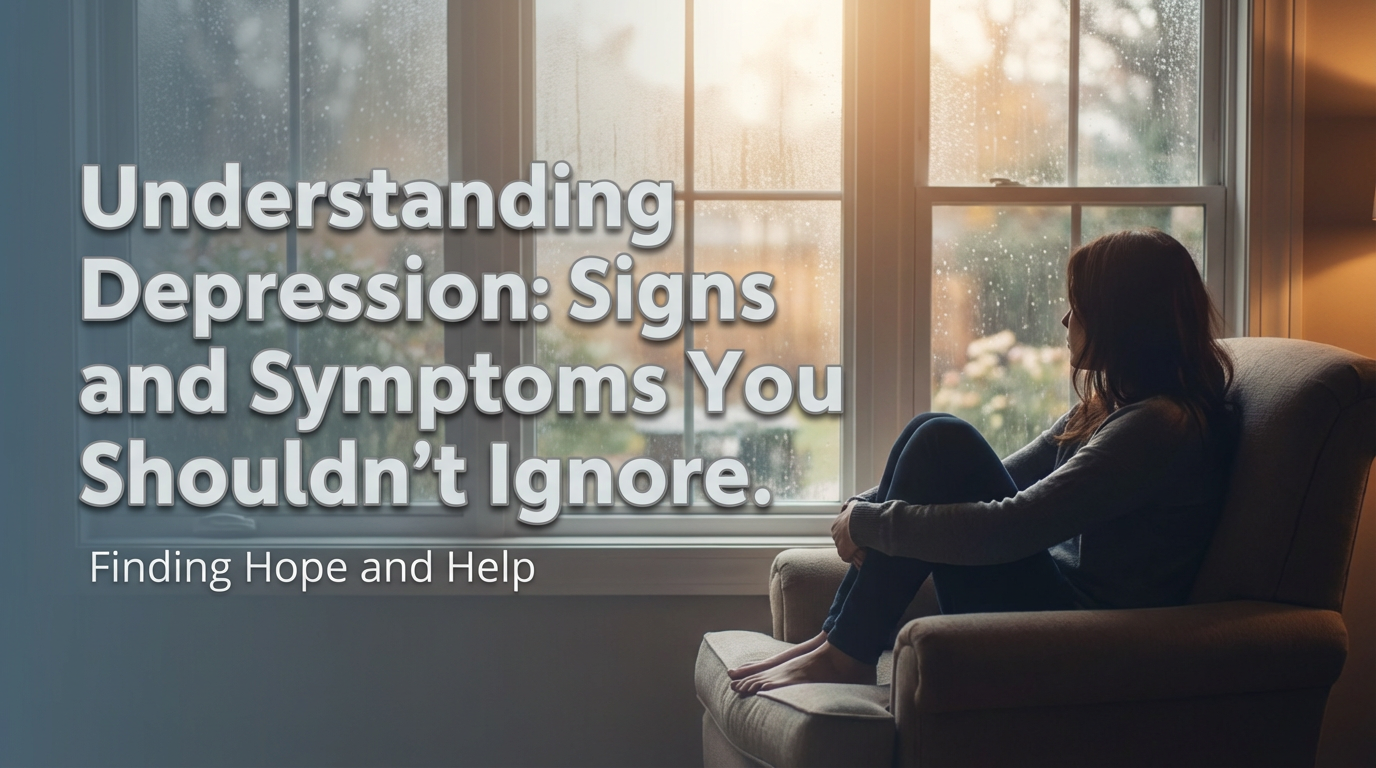
Mental health is a vital part of our overall well-being, affecting every aspect of our lives, from our careers and relationships to our personal growth. Yet, it remains a topic often shrouded in stigma and misunderstanding. One of the most common yet frequently misunderstood mental health conditions is depression. Many people who are struggling with depression don't even realize it, attributing their symptoms to stress, fatigue, or simply feeling down.
In a recent video, Dr. N. Sawyerr of "Bridge The Gap Engineer" sheds light on the signs and symptoms of depression that should never be ignored. While he is not a medical doctor, his thoughtful and informative video serves as a crucial conversation starter, aiming to raise awareness and encourage those who are struggling to seek the help they deserve. This blog post will explore the key insights from his video, providing a comprehensive overview of the emotional, physical, and behavioral signs of depression.
Disclaimer: This blog post is for informational purposes only and is not a substitute for professional medical advice, diagnosis, or treatment. If you or someone you know is struggling with mental health, please seek help from a qualified healthcare provider.
More Than Just Feeling Sad
Depression is far more complex than simply feeling sad. It is a persistent and pervasive mental health condition that can impact every facet of your life—your mood, your energy, your behavior, and even your physical health. One of the most insidious aspects of depression is that it often remains hidden in plain sight. Individuals can appear perfectly fine on the outside while battling a storm of negative emotions and thoughts internally.
To better understand this condition, let's delve into the common symptoms of depression, categorized into three main groups: emotional, physical, and behavioral.
Emotional Symptoms
The emotional toll of depression can be the most challenging to articulate. It's a persistent feeling of being in a dark place, with no light at the end of the tunnel. Some of the key emotional symptoms include:
- Persistent Sadness or Emptiness: A feeling of being down or hopeless most of the time, even when there is no clear reason.
- Loss of Interest in Activities: The things that once brought you joy—hobbies, sports, music—now feel meaningless and uninteresting. This is also known as anhedonia.
- Hopelessness: A pervasive feeling that nothing will ever get better, accompanied by thoughts like, "What's the point?"
- Sudden Mood Swings: Experiencing sudden bouts of crying for no apparent reason or feeling irritable and agitated all the time.
- Guilt and Worthlessness: A constant feeling of being a burden to others or that you are not good enough.
Physical Symptoms
Depression is not just a mental battle; it manifests physically as well. Many people fail to recognize they are depressed because their symptoms feel more physical than emotional. These can include:
- Changes in Sleep Patterns: This can manifest as either sleeping too much (hypersomnia) or struggling with insomnia.
- Chronic Fatigue: A persistent feeling of being tired and drained, even after a full night's rest.
- Unexplained Aches and Pains: Headaches, back pain, stomach issues, and other physical ailments without a clear medical cause.
- Changes in Appetite: This can lead to either eating too much or too little, often resulting in significant weight changes.
- Slowed Movement or Speech: A feeling that even the smallest tasks require an enormous amount of effort.
Behavioral Symptoms
Depression can also lead to significant changes in behavior, often leading to isolation and a decline in daily functioning. These behavioral shifts can include:
- Social Withdrawal: Avoiding social interactions, canceling plans, and ignoring messages from friends and family.
- Loss of Productivity: Struggling to focus at work or school, missing deadlines, and losing motivation for personal projects.
- Neglecting Responsibilities: Forgetting important tasks and letting personal and professional responsibilities slide.
- Increased Reliance on Substances: Using alcohol or drugs as a way to escape or numb the emotional pain.
- Thoughts of Self-Harm or Suicide: This is the most critical warning sign of depression. If you or someone you know is having thoughts of suicide, please seek help immediately.
When and How to Seek Help
If you have been experiencing any of these symptoms for more than two weeks, or if they are significantly impacting your daily life, it's time to talk to someone. You don't have to wait until things get worse. Seeking help early can make a significant difference in your recovery journey.
Here are some steps you can take:
- Talk to Someone You Trust: This could be a family member, a close friend, or a mentor.
- Seek Professional Help: A therapist, counselor, or doctor can provide you with a proper diagnosis and treatment plan.
- Join a Support Group: Connecting with others who are going through similar experiences can be incredibly helpful and validating.
Remember, seeking help is a sign of strength, not weakness. You are not alone, and you are worthy of support.
This blog post is based on the video "Signs and Symptoms of Depression You Shouldn’t Ignore" by Dr Nathaniel Sawyerr on Bridge The Gap Engineer. You can watch the full video here.